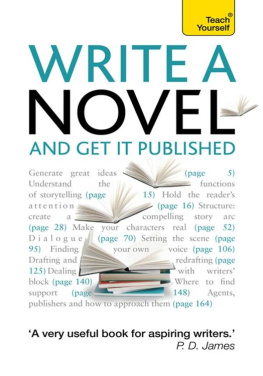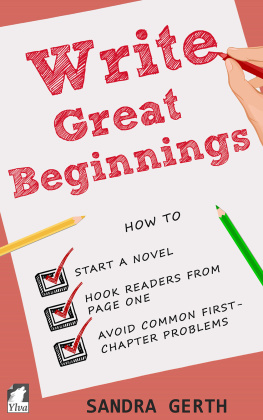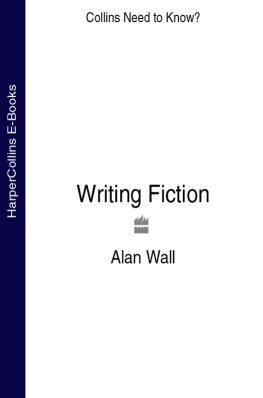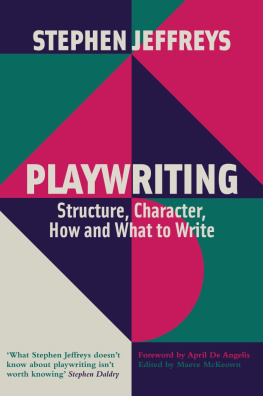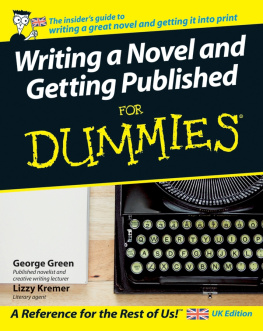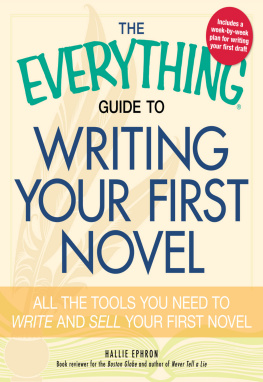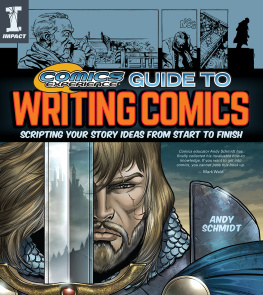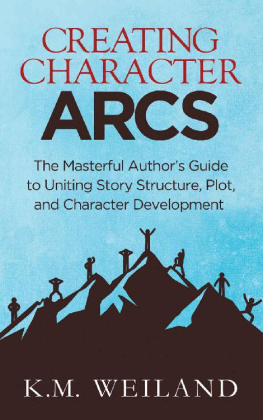Write a Novel And Get it Published
Nigel Watts and Stephen May
Contents
Acknowledgements
The Hand from Eating Out, from I Would Have Saved Them If I Could by Leonard Michaels (copyright 1975 by Leonard Michaels) is reprinted by permission of Farrar, Straus & Giroux, Inc.
Preface
Nigel Watts was passionate about writing, but even stronger was his motivation to help others discover the writer within. To that end, he dedicated himself in the latter part of his career to designing and teaching highly successful creative writing workshops, aptly titled Write to Life. These were designed to uncover the writer people suspected lay within, but were perhaps too frightened to release; a subject Nigel covers in this book.
He then realized that once the writer had been released, there was a need for him to add to his teaching repertoire the how, the what and, in his words, the craft of writing, so he went on to create a course entitled Plotting the Story. It was after teaching a series of these courses and receiving consistently enthusiastic feedback from the participants, that Nigel decided to share his learning with a wider audience and write this book. Into it he poured his knowledge and experience of what makes a good writer.
So who was Nigel Watts? His own journey as a writer started about 22 years ago, when he decided it was time he listened to that inner voice and commit to writing his first novel. For the next 15 years, right up to his untimely death in 1999, Nigel was a full-time writer, supplementing his income by teaching creative writing courses, tutoring writing students and receiving several awards and grants for his work.
He published five novels, two childrens stories and an anthology of spiritual poetry. He also held a PhD in creative and critical writing from the University of East Anglia.
His first novel, The Life Game, won the prestigious Betty Trask Award in 1989, and his second novel, Billy Bayswater, was shortlisted for the Mail on Sunday award in 1990. He received the British Library/Penguin Writers Fellowship grant to write his last novel The Way of Love, 1999.
Nigel was a talented, highly respected and determined writer; he once wrote, Language is a faulted medium, and yet it is the best I have at my disposal to communicate and explore what is important to me: the heart of what it is to be human.
It was an honour to be his wife and witness the unfolding of his own creative process and the fruits of his labours. I now invite you to embark on your own creative journey, using this book as your guide.
For the beginner and experienced writer alike, this book does not leave any gaps in the process of writing your novel, from conception, to gestation, to birth and the ultimate step of marketing it.
So what are you waiting for? Enough of procrastination, self-doubt, of thinking that there are enough writers out there, and that no-one would be interested in your story anyway grab this book with both hands, dive in and swim. Use it as you wish, reading it from start to finish, or dipping in and out, but use it to make your dream come alive. If there were one lasting legacy Nigel would have chosen, it would be this: to live your dream, fully and passionately, as if your life depended on it.
Sahera Chohan, widow of Nigel Watts
Foreword
A year or so ago, the good people at Hodder Education asked me if Id write a new edition of Teach Yourself: Write a Novel and Get it Published. They explained that the current book was good and still selling well, but that the author Nigel Watts had sadly died back in 1999 and that they knew a lot had changed in the fiction landscape in the last fifteen years or so.
I was flattered to be asked and I have the freelancers natural urge to say yes to everything. And so I said yes to this. After all, I thought, Ive written two novels, I have a third coming out. Ive even won awards and prizes. So it should be easy, right?
Wrong.
It turned out to be one of the hardest things Ive had to do
Writing about the publishing industry was ok - the ecology of agents and publishers really has changed a lot since 1999, but it was a simple matter to research and to write. I was able to update these sections of the book quite quickly, and in a way that makes that sometimes murky world of publishing a little more penetrable. So that was the ... and Get It Published dealt with.
But the How to Write a Novel bit had me stumped for ages. Not because I didnt have things to say but because Nigel Watts had pretty much said those same things first. And said them so well. I found that he had pretty much already produced the book I wanted to produce. He had obviously thought very long and very hard about what makes a successful novel, and then worked on making sure that he expressed it plainly. In short, there was no need for me to come along and replace his thoughts with my own. (In fact, I began to wish Id read his original book a long time ago before I wrote my own first novel anyway.)
So, in the end there was only one decent thing to do. I told the publisher that they already had the book they needed. I told them that, yes, the industry had changed but the essence of writing fiction was timeless, and that Nigel Watts had managed to break down the chemical compound of a novel in a way that was scientific and clinical. Hed also managed to dissect the craft of writing in a way that provided a blueprint for the determined writer to follow, an effective chart to steer by.
A good novel gets to the heart of what it is to be human in a way that transcends fashion, and Nigel Watts seemed to have found a way to equip emerging writers with the tools for the long journey from idea to completed manuscript.
So, a compromise was reached. The bulk of Nigel Watts original book would remain in place, and I would edit, update and rework to keep the book fresh and relevant. Hopefully, this is one of those rare sequels that is better than the original (like Toy Story 2, for example, or The Godfather: Part II).
In the end, you, the reader, have got a pretty good deal here. The book you have in your hand is full of road-tested practical advice and tips from not one but two professional novelists. I dont suppose people will ever talk about May and Watts in the same way that they talk about Lennon and McCartney, or Rolls and Royce, but I like to think that nevertheless we have become a partnership that future novelists will quietly acknowledge in the years to come.
Maybe you, the next J. K. Rowling, the next Stephen King, the next (insert name of literary hero here) will raise a glass to us a few years from now as you sign your name on your novel contract.
I certainly learned a lot from my careful reading of Nigels original text, and Im sure my next novel will benefit from his posthumous help and advice. And I like to think that he too might have appreciated what Ive been able to add. I also hope that he might have forgiven the necessary liberties Ive taken to ensure his book makes sense for a modern readership.

